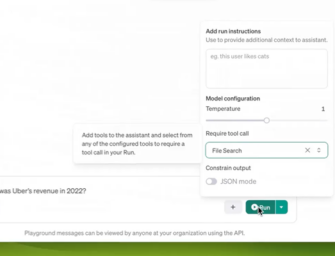Apple Acquires Voice AI Startup Voysis
 Apple has acquired Irish artificial intelligence startup Voysis for an undisclosed sum, according to a Bloomberg report. Voysis’ technology, including a platform that adds voice interactions to digital retailers, may be used to improve how well Apple’s Siri voice assistant understands what people say.
Apple has acquired Irish artificial intelligence startup Voysis for an undisclosed sum, according to a Bloomberg report. Voysis’ technology, including a platform that adds voice interactions to digital retailers, may be used to improve how well Apple’s Siri voice assistant understands what people say.
Voysis Speech
Voysis was founded in 2012 and provided AI services to a range of businesses. The company raised $8 million in a funding round led by Polaris Partners in early 2017. Later that year, Voysis launched an independent voice platform for retailers to add voice to mobile apps and websites. Voysis adapted the Wavenet system for synthesizing human speech first created by Google in 2016 to generate voices but using far less memory. Less memory means the voice responds more quickly and that it can be stored on a device, without requiring access to the cloud. The ‘on-edge’ processing is more efficient and can better preserve user privacy.
Incorporating Voysis technology could boost Siri’s comprehension and make the voice assistant more responsive. That can make a big difference when Google Assistant consistently outranks Siri in IQ tests, and Amazon’s Alexa voice assistant is catching up quickly. The technology could also be used to improve the way third-party developers integrate with the voice assistant. As Siri is beginning to open up to more developers, upgrading the natural language understanding of Siri and those apps would be a useful corollary. Apple did not give any details about the purchase, as is usual for the company.
Buying an Edge
This isn’t Apple’s only recent AI acquisition. News broke in January that Apple bought AI startup Xnor for around $200 million. Xnor builds low-power machine learning technology that also works without needing the cloud. It had built solar-powered hardware the size of a quarter and a platform for non-technical developers to build AI into smart device apps before being bought.
The explicit reasons behind both purchases aren’t known, but the smaller, faster approach both companies take to their tech suggests the non-cloud element is of interest to Apple. The benefit of energy efficiency and privacy is something many manufacturers and potential Apple partners would want. It’s why speech tech developer Sensory created a customizable voice assistant specifically for smart home appliances that operate entirely on the device. The same features are part of the Picovoice platform, which uses devices built with ARM microcontrollers by voice to run the Cheeta voice-to-text system.
Any way that Apple can point to its privacy protection will matter, especially after a year when every voice assistant developer dealt with reports that contractors were listening to audio recordings for quality control and improvement programs, including Apple’s Siri. Apple and others had to apologize, pause their contractor programs, and revise how they operated in some form. The fights with regulators and lawmakers aren’t over, though, and Apple may want Siri to be ready for cloud-free interactions in the future.
Follow @voicebotai Follow @erichschwartz
Apple Acquires Edge-Processing AI Startup Xnor for $200M: Report








